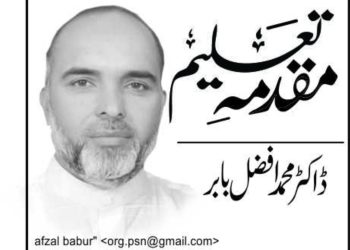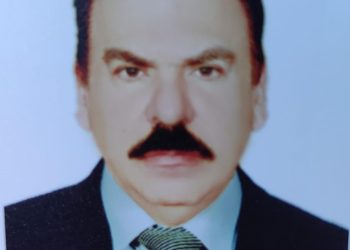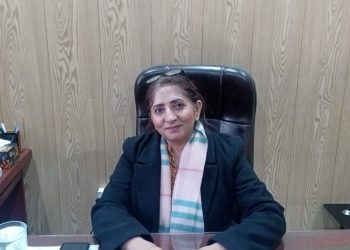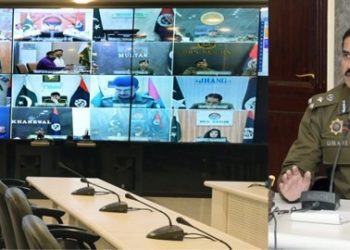ISLAMABAD: Foreign Office has come forward to defend the country’s decision to procure “affordable” crude oil from Russia. This move is seen as a strategic priority for Pakistan, considering the prevailing difficult economic situation, energy shortages, and the high cost of energy resulting from heavy dependence on imported petroleum.
During a weekly media briefing, Mumtaz Zahra Baloch, the spokesperson for the Foreign Office, explained that the process of procuring petroleum from Russia had been underway for some time. After intense negotiations, a deal was successfully finalized, leading to the arrival of the first shipments of oil from Russia.
Baloch underscored the significance of affordable oil imports for Pakistan, as the nation faces economic challenges and severe energy shortages. This deal is expected to alleviate some of the burdens placed on the Pakistani people. However, when questioned about the payment currency used in the agreement, Baloch referred it to the Ministry of Petroleum for further details.
Responding to concerns expressed by the US State Department spokesperson regarding the functioning of military courts, Baloch reaffirmed Pakistan’s commitment to upholding its laws and constitution. She assured that any actions taken by the government in relation to the events of May 9 would be carried out in accordance with the country’s legal framework and constitutional provisions. Baloch emphasized Pakistan’s adherence to the rule of law and its commitment to protecting the rights and property of its citizens, which are guaranteed by the judiciary.
On the matter of the delayed Pakistan-IMF deal, Baloch declined to provide a response, clarifying that the Ministry of Finance is leading the negotiations with the International Monetary Fund and is better positioned to provide updates.
Addressing reports of the Afghan interim government relocating the Tehreek-e-Taliban Pakistan (TTP) to northern Afghanistan, Baloch refrained from disclosing specific details. She mentioned that Pakistan is engaged in ongoing discussions with the Afghan interim government to address concerns related to terrorism. Baloch emphasized Pakistan’s dedication to countering the terrorist threat and expressed a willingness to work closely with the Afghan authorities.
Baloch also highlighted the multifaceted cooperation between Pakistan and the European Union, encompassing areas such as climate change, food security, green technology, sustainable development, and labor mobility. She revealed that Minister of State for Foreign Affairs Hina Rabbani Khar is currently on a visit to Europe, engaging in consultations with European counterparts. The discussions include the Generalized Scheme of Preferences Plus (GSP+) as part of the agenda.
Regarding coordination with India in response to the cyclone off the coast of Karachi, Baloch stated that no contact had been established with Indian authorities on the matter.
Concerning a boat wreck off the coast of Greece, Baloch confirmed that initial reports from Pakistan’s Mission indicated no Pakistani casualties. The situation is being closely monitored, and further updates will be provided as necessary.
Regarding the Broadsheet Case, involving outstanding payments owed by the National Accountability Bureau (NAB) to the Ministry of Foreign Affairs, Baloch clarified that, according to their accounts, there are no pending amounts from NAB. While financial transactions have occurred between the two departments in the past, no outstanding financial obligations exist at present.
Lastly, Baloch highlighted Foreign Minister Bilawal Bhutto Zardari’s recent visit to Iraq, characterizing it as a historic occasion for bilateral discussions on cooperation across various sectors. The government of Iraq has granted permission for Pakistan to open a consulate in Najaf, facilitating trade and aiding Pakistani pilgrims (Zaireen). Discussions are also underway for a potential ferry service between Gwadar and Iraq, with further announcements expected upon reaching a final outcome.
The Foreign Office announced that the 12th round of Pakistan-Iran Bilateral Political Consultations (BPC) is scheduled to take place in Tehran on June 17-18, 2023. The Pakistani delegation will be led by Foreign Secretary Dr. Asad Majeed Khan, while Iran will be represented by Deputy Foreign Minister for Political Affairs Ali Bagheri Kani.
The upcoming BPC reflects the continued diplomatic engagement between Pakistan and Iran, aiming to strengthen bilateral ties and address regional issues of mutual concern. The discussions are expected to cover a wide range of topics, including political cooperation, regional security, trade, and cultural exchanges.
The meeting holds significant importance as it provides a platform for both countries to exchange views and explore avenues for enhanced collaboration. It is expected that the delegations will discuss measures to deepen political and economic cooperation, as well as promote people-to-people contacts between Pakistan and Iran.
The BPC also presents an opportunity to address common challenges faced by the two neighboring countries, including regional security issues and the fight against terrorism. Both Pakistan and Iran have been actively involved in promoting peace and stability in the region, and this meeting serves as a platform for continued cooperation in these efforts.
The outcome of the 12th round of BPC will contribute to further strengthening the bilateral relationship between Pakistan and Iran, fostering greater understanding and cooperation in various fields. It is expected that the discussions will result in concrete steps and agreements that will benefit both nations and contribute to regional stability.
As the diplomatic engagement between Pakistan and Iran continues to evolve, both countries reaffirm their commitment to working closely together and finding common ground on shared challenges and opportunities. The BPC serves as a testament to the enduring friendship and cooperation between Pakistan and Iran, and the mutual desire to enhance bilateral ties for the benefit of their peoples and the region as a whole.
















